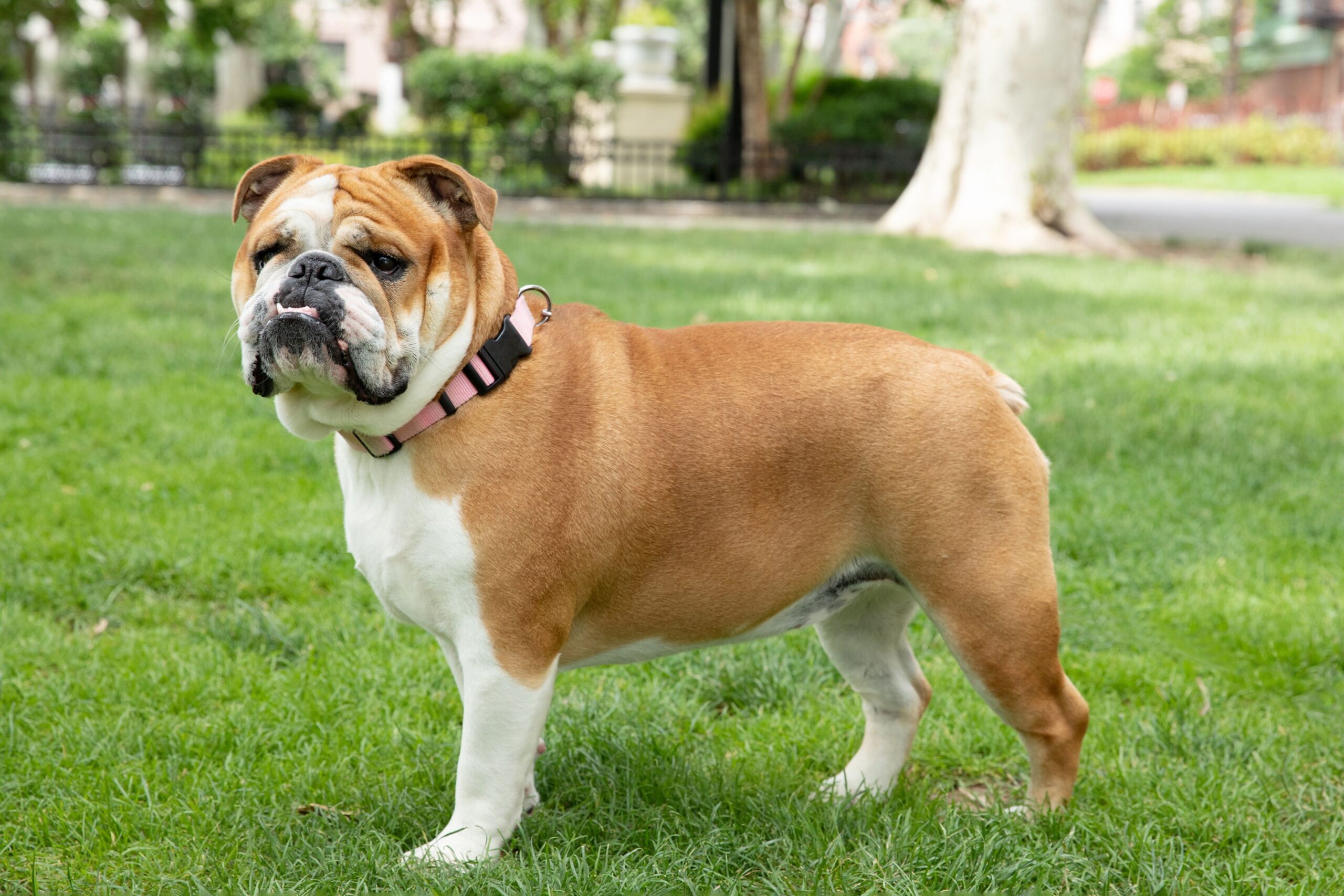Complete Guide to Bull Terrier: Full Details, How to Choose, Train, Care, Pros & Cons, and Price
The Bull Terrier is a breed that is known for its distinctive appearance, playful personality, and immense loyalty to its family. Originally bred for bull-baiting and later refined as a companion animal, the Bull Terrier has evolved into a loving and energetic dog that requires the right training, care, and environment to thrive. This guide will provide you with everything you need to know about the Bull Terrier, including choosing, training, caring for, and understanding the breed’s pros and cons, as well as what you should expect in terms of price.
1. Introduction to Bull Terrier
The Bull Terrier is a medium-sized dog with a very distinctive and muscular build. Its head is its most recognizable feature, being long, egg-shaped, and flat with a powerful jaw. The breed is often described as a “clown” dog due to its playful and sometimes mischievous nature, but beneath that playful exterior lies a loyal and protective companion.
Origin and History: The Bull Terrier was originally bred in the early 19th century in England, primarily as a fighting dog for bull-baiting, but when that practice was outlawed, they became popular as companion animals. The breed is a mix of the now-extinct Old English Bulldog and the now-extinct English White Terrier. Through selective breeding, the Bull Terrier’s temperament shifted toward a more friendly and balanced personality, making it better suited for a family environment.
Despite their tough appearance, Bull Terriers are known for their affectionate nature and their ability to form strong bonds with their families. They are often referred to as the “gladiators of the dog world,” with their incredible courage and determination.
2. Physical Characteristics of the Bull Terrier
Size and Weight: Bull Terriers are medium-sized dogs, with males typically weighing between 55-70 pounds (25-32 kg) and females weighing between 40-60 pounds (18-27 kg). Their height at the shoulders generally ranges from 21-22 inches (53-56 cm).
Appearance: One of the most distinguishing features of the Bull Terrier is its head, which is long and egg-shaped, giving them a unique and often humorous look. Their muscular bodies are compact and strong, built for both strength and agility. They have deep, broad chests and powerful, well-muscled legs that reflect their working dog origins.
The breed has short, flat coats that come in a variety of colors, including white, black, brindle, and a mix of these colors. They are generally low-maintenance in terms of grooming, but they still shed seasonally.
Eyes and Expression: Bull Terriers have small, triangular eyes that are set close together. This gives them an almost mischievous expression, which is a hallmark of the breed. Despite their fierce look, they are generally affectionate and gentle with their families.
3. Temperament of Bull Terriers
Bull Terriers are known for their playful, fun-loving, and somewhat mischievous nature. They are extremely energetic dogs and enjoy participating in activities that challenge them both physically and mentally. They can be a bit stubborn at times, which may pose challenges for first-time dog owners, but they are also loyal and loving companions.
- Loyal and Protective: Bull Terriers are incredibly loyal to their families. They are protective of their home and loved ones and make great watchdogs. They are alert and will often bark to warn you of any intruders or unusual activity.
- Playful and Energetic: Bull Terriers have a strong prey drive and enjoy playing games, especially games involving chasing and fetching. Their high energy levels mean they need ample playtime and exercise to keep them happy and healthy.
- Stubbornness: This breed has a strong-willed personality, which can make training a challenge. Bull Terriers often do things their own way and need a firm, consistent handler. However, with the right motivation, they can be trained effectively.
- Good with Families: Despite their tough exterior, Bull Terriers are great with children and can be very affectionate toward family members. They are social dogs that thrive on interaction and attention.
4. How to Choose a Bull Terrier
When selecting a Bull Terrier, you need to consider several factors to ensure you’re choosing the right dog for your home and lifestyle.
- Choose a Reputable Breeder: It’s important to choose a breeder who prioritizes the health and temperament of the dog. Look for breeders who are registered with reputable organizations such as the American Kennel Club (AKC) or other similar national clubs. Responsible breeders will provide health screenings for common breed-specific conditions and ensure that the puppies are well-socialized.
- Health Considerations: Before choosing a Bull Terrier, make sure to ask the breeder about the health history of the parents and whether they’ve been screened for common genetic health issues such as kidney disease, heart issues, or patellar luxation. A healthy Bull Terrier should have a shiny coat, bright eyes, and be free of any signs of illness.
- Age and Temperament: Consider the age of the dog. A puppy may require more training and patience, but an adult Bull Terrier will have established behaviors and may be easier to manage. Also, ask to meet the dog’s parents to get a sense of the puppy’s potential temperament.
5. Training a Bull Terrier
Training a Bull Terrier requires patience, consistency, and firm leadership. While they are intelligent, their independent and sometimes stubborn nature can make them difficult to train. Here are some tips for successful Bull Terrier training:
Socialization: Start socializing your Bull Terrier from a young age. Expose them to different environments, people, and other animals. Early socialization helps prevent behavioral problems and ensures they grow into well-adjusted adults.
Positive Reinforcement: Bull Terriers respond best to positive reinforcement methods. Use treats, praise, and rewards to encourage good behavior. Avoid harsh training methods as Bull Terriers can become resistant to negative reinforcement.
Consistency and Routine: Be consistent with commands and routines. Bull Terriers thrive on structure and will respond well to a stable and predictable environment.
Exercise and Mental Stimulation: Provide plenty of physical exercise to release their excess energy. Bull Terriers need mental stimulation as well, so interactive toys, puzzle feeders, and training sessions are a great way to keep them engaged.
Obedience Training: Basic obedience training is essential. Focus on commands such as “sit,” “stay,” and “come” to establish control. Bull Terriers can be stubborn, so patience is key, but with consistency, they can be trained to be obedient and well-behaved.
6. How to Care for a Bull Terrier
Exercise Needs: Bull Terriers are highly energetic dogs that need regular exercise to stay healthy. They require at least 1 hour of exercise per day, including walks, playtime, and mental stimulation. Regular play sessions and training exercises are essential to burn off their energy.
Grooming: Despite having short fur, Bull Terriers shed year-round and will experience heavier shedding during seasonal changes. Brushing them 2-3 times a week can help reduce shedding and keep their coat healthy.
- Bathing: Bull Terriers don’t require frequent baths, but occasional baths using a gentle dog shampoo will help keep them clean and odor-free.
- Dental Care: Brush your Bull Terrier’s teeth regularly to prevent dental issues. This breed can be prone to dental problems, so establishing a dental care routine is important.
- Ear and Eye Care: Check their ears regularly for wax buildup and signs of infection, especially because their small, triangular ears can trap dirt. Their eyes should also be monitored for irritation or redness.
- Nail Trimming: Trim their nails regularly to prevent discomfort or injury. Longer nails can lead to joint pain and difficulty walking.
7. Pros and Cons of Owning a Bull Terrier
Pros:
- Affectionate and Loyal: Bull Terriers form strong bonds with their families and are very affectionate. They love being around people and enjoy attention.
- Protective Nature: They make great watchdogs and will alert you to any unusual activity or strangers approaching your home.
- Energetic and Playful: Bull Terriers are fun-loving dogs who will keep you entertained with their playful antics and energetic personality.
- Great with Families: They tend to be excellent companions for families with children, as they are very patient and gentle with them.
Cons:
- Stubborn and Independent: Bull Terriers can be difficult to train due to their independent and stubborn nature. They may not always listen to commands, making training a challenge.
- High Exercise Needs: Their energy levels require a lot of physical and mental stimulation. Without proper exercise, they can become destructive.
- Health Concerns: The breed is prone to certain health problems, such as skin issues, kidney problems, and heart conditions.
- Can Be Aggressive Toward Other Animals: Although they are generally good with people, Bull Terriers can be aggressive toward other animals, especially if not properly socialized.
8. Price of a Bull Terrier
The price of a Bull Terrier can vary significantly depending on factors such as the dog’s lineage, breeder reputation, and location. On average, a Bull Terrier puppy will cost between $1,000 and $3,000. Some dogs from show-quality lines or with championship pedigree may be more expensive.
Additional costs include food, healthcare (vet checkups, vaccinations, etc.), grooming tools, and training classes. It’s also essential to set aside funds for any unexpected medical expenses, as Bull Terriers may be prone to certain health conditions.
9. Conclusion
The Bull Terrier is a unique, loyal, and energetic breed that can make an excellent companion for the right owner. They require consistent training, exercise, and care, but the rewards of owning a Bull Terrier are immense. Their playful personality and strong bond with their families make them wonderful pets for active households. With the right approach, they can be happy, healthy, and well-behaved companions who will enrich your life.




